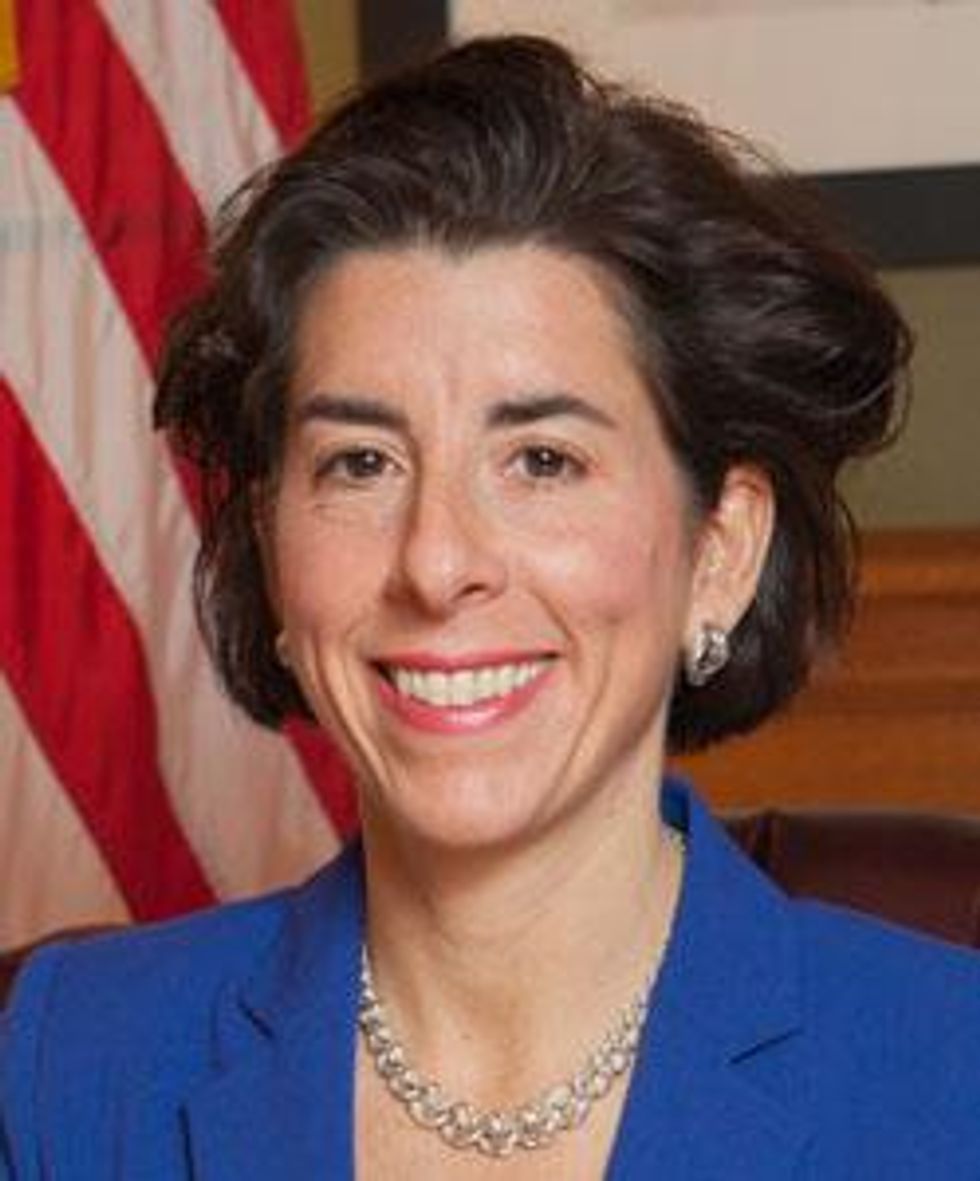Startups and Advocates Keep a Hopeful Eye on Biden’s Pick to Run the US Patent Office
Sam primarily covers entertainment and media for dot.LA. Previously he was Marjorie Deane Fellow at The Economist, where he wrote for the business and finance sections of the print edition. He has also worked at the XPRIZE Foundation, U.S. Government Accountability Office, KCRW, and MLB Advanced Media (now Disney Streaming Services). He holds an MBA from UCLA Anderson, an MPP from UCLA Luskin and a BA in History from University of Michigan. Email him at samblake@dot.LA and find him on Twitter @hisamblake

After seven years trying to make it as an entrepreneur, Josh Malone's dreams and savings were running dry. With a growing family, urgency was mounting for his return to the safety and stability of corporate life. Desperate for a final crack, he asked his wife for patience and built one last prototype – a patented device that could quickly fill and tie multiple water balloons at once, which he called "Bunch O Balloons" – and started a Kickstarter campaign.
Malone raised nearly $1 million from 21,000 backers, and was invited on the national TV circuit, including a feature on the "Today Show."
"That's when it blew up," he recalled.
Malone struck a big deal with Zuru, a Los Angeles-based toy company, to exclusively license his patent, and his invention soon lined retail shelves across the country.
But he quickly learned that his patent, which was supposed to grant him legal recourse to prevent others from exploiting his invention for 20 years, hadn't deterred copycats, and that his ability to stop them wasn't as ironclad as he'd expected.
Patents can be the lifeblood of a startup and their immediate future will be shaped by the next head of the U.S. Patent and Trade Office (USPTO), which receives over 600,000 patent applications a year and sets the tone for how the executive branch enforces patent rights. Once small-time players like Google and Intel used patents to shoot ahead in their industries, along with many other founders who've leveraged patents to help raise money and protect investors. If the company fails, they may be able to sell the patents off to others.
Over the last 15 or so years, however, a combination of court decisions, regulatory changes and new legislation has weakened U.S. patent protection, leaving smaller patent owners few ways to prevent others from exploiting their inventions, according to USC law professor Jonathan Barnett.
Since 2006, the trend "has tended to favor the interests of larger firms and firms that use system or platform business models, like Google or Facebook, and disfavor entrepreneurs and firms that focus on innovation but don't necessarily convert those innovations into products for end-users, like Qualcomm, UCLA or BioNTech," said Barnett.
Startups often have a tougher time taking on established companies when patent rights are weakened, Barnett found after examining 116 years of U.S. patent and antitrust history for his latest book.
Patents can help startups raise money and attract partners and open doors to new markets. Established companies, on the other hand, can more easily self-finance commercialization of their innovations, said Bridget Smith, an L.A.-based patent lawyer who recently filed a brief to the U.S. Supreme Court arguing for stronger patent rights. Weaker patent rights often help incumbents fend off new competitors trying to grab a toehold in their market, she said.
As the Biden administration takes office, Smith, Malone and others concerned with how the government wields its patent policies are watching closely to see who will become the new leader of the USPTO.
"There are big debates about who the patent system benefits," said Barnett. Opponents to patent protection argue that patents slow innovation or increase prices, he said, but "empirical data is either uncertain or, in some cases, refutes these claims."
While changes under the outgoing USPTO director have slowly started to tilt the scales back toward stronger patent protection, Barnett said, "it will be interesting to see if the new administration reverts to the policies under the Obama administration, which was more patent-skeptical."
Who Will Be the Next USPTO Director?
It is too early to tell who Biden will pick to lead the USPTO. He has not publicly indicated who his choice will be, and the people he has surrounded himself with so far don't provide many clues about which way his appointee could lean.

Gina Raimundo is a former venture capitalist and current governor of Rhode Island.
On one hand, Gina Raimundo, a former venture capitalist and current governor of Rhode Island, is awaiting Senate confirmation to lead the Commerce Department, under which the USPTO falls. Based on her past career, she is "familiar" with IP and startups, said former USPTO Director David Kappos, suggesting that Raimundo may lean toward an inventor- and startup-friendly patent regime.
There are also indications, however, that Biden could take a harder line on patent-protection. He appointed UC Santa Clara law professor and former Obama IP-advisor Colleen Chien to his transition team, for instance. Chien has previously opposed the STRONGER Patents Act, legislation carried by Delaware Senator Chris Coons (D), who is now chairman of the Senate Subcommittee on Intellectual Property.
Traditionally, the appointment and confirmation of the USPTO director occurs after the secretary of commerce is confirmed. Should Raimundo's appointment go forward, Kappos said the new USPTO director appointee could enter the extensive vetting process by April and assume the position a few months later. At that point, the director will start to implement the direction that the Biden administration wants to take U.S. patent rights.
The Patent-Protection Pendulum
One key issue that the new director will have to weigh in on, and which has had a big influence on the recent push toward weaker patent protection, is how to subdue "patent trolls" — entities that accumulate patents with the sole purpose of suing companies for infringement. In many of those cases, companies settle out-of-court to avoid prolonged and expensive legal battles.
Ten years ago, in response to what he and others saw as "rampant abuse of the system" by patent trolls, Kappos oversaw the establishment of a new entity at the USPTO empowered to retrospectively invalidate patents. The Patent Trial and Appeal Board (PTAB) was hailed by proponents as an efficient and easy process to clean up the patent system, but critics say it went too far.
Particularly under Kappos' successor, former Google executive Michelle Lee, the PTAB "became a killing field for patents," said Brian Pomper, executive director of the Innovation Alliance, a pro-patent trade group that represents companies including Qualcomm and Dolby Labs.
Pomper said a recent series of rulings by the Supreme Court — motivated in part by a fear of patent trolls — has injected an unwelcome uncertainty over what is and isn't eligible for a patent, a sentiment echoed by multiple sources and shared by numerous current and former judges, appointees and legislators.
Smith and Pomper said the upshot of this uncertainty is weaker patent-rights and lower patent values.
Some politicians have taken note. Senator Coons, for example, has said that "U.S. patent law discourages innovation in some of the most critical areas of technology, including artificial intelligence, medical diagnostics and personalized medicine."
Of Balloons and Slingshots
Much of the support for the weakening of patent-protection has been backed by big tech lobbying at the expense of smaller, would-be competitors, according to critics like intellectual property lawyer Robert Taylor.
"In the matchup between David and Goliath, Goliath didn't need a slingshot; he only had to take David's away from him," said Taylor. "That's what large tech companies are doing with respect to small companies' patents."
It was against this backdrop that Malone's patent litigation battle unfolded.
Not long after Bunch O Balloons had arrived on retail shelves nationwide, TeleBrands – a large firm that invented the "As Seen On TV" method of selling products through pitchmen like Billy Mays – began selling a knock-off product.
From 2015 to 2019, Zuru, the L.A.-based company that had licensed Bunch O Balloons, pumped almost $100,000 a week into litigation and attorney and expert fees to sue TeleBrands, ultimately spending "$20 million in legal costs fighting over a stupid water balloon intellectual property," Malone said.
Ultimately, they prevailed. TeleBrands and several retailers were ordered to pay Malone and Zuru $31 million for infringing on their patent. They were also forced to permanently stop selling the knock-off product. Bunch O Balloons has now done nearly half a billion dollars in total sales.
Malone, who has since gone on to work as a full-time volunteer for patent-protection advocacy group US Inventor, says he is a rare exception. If not for his deep-pocketed backer, he said, he would have been another victim of an intellectual property system that he sees as rigged against the little guy.
"The average patent trial is about $450,000," said Smith. "That's nothing to FAANG companies, but that could eat up a startup's entire funding."
Adding more certainty over patent-eligibility and mitigating the power of the PTAB to invalidate patents are steps that the outgoing USPTO director, Andrei Iancu, took to strengthen patent protection. These decisions, Smith said, helped provide confidence to investors and lawyers working on contingency that it's worth putting up the fight against infringers.
Such changes were never codified into law, however, and the next director could take a new approach.
"There really is a chance to make a break (from weaker patent-protection), or do business as usual," Smith said.
Malone hopes for a course correction from what he and others view as an overreaction. "The problem with the efforts to stop the so-called patent troll is that they have thrown the baby out with the bathwater," he said.
The new USPTO director will inherit that legacy – and the power to decide what to do about it.
Sam primarily covers entertainment and media for dot.LA. Previously he was Marjorie Deane Fellow at The Economist, where he wrote for the business and finance sections of the print edition. He has also worked at the XPRIZE Foundation, U.S. Government Accountability Office, KCRW, and MLB Advanced Media (now Disney Streaming Services). He holds an MBA from UCLA Anderson, an MPP from UCLA Luskin and a BA in History from University of Michigan. Email him at samblake@dot.LA and find him on Twitter @hisamblake



 Image Source: Skyryse
Image Source: Skyryse
 Image Source: Northwood Space
Image Source: Northwood Space